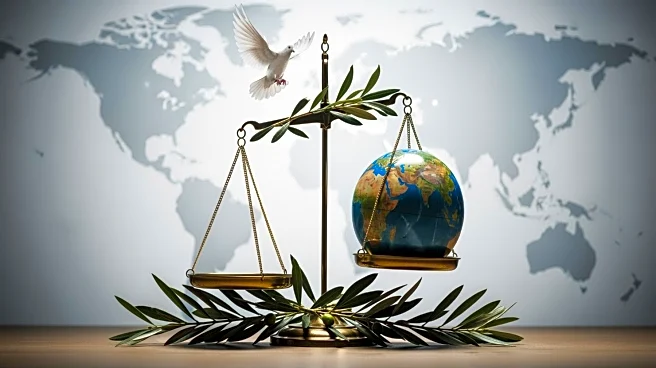What's Happening?
The United Nations has a long history of successful peacekeeping operations, having helped end conflicts and foster reconciliation in numerous countries since 1948. UN peacekeeping missions operate in some of the most challenging environments, providing
security guarantees and supporting political transitions. These missions have been instrumental in helping countries move from conflict to development, although challenges remain. The UN's peacekeeping efforts are guided by principles of consent, impartiality, and non-use of force, and are seen as legitimate and credible by local populations. Despite past setbacks, UN peacekeeping continues to play a vital role in maintaining international peace and security.
Why It's Important?
UN peacekeeping missions are crucial for maintaining global peace and security. By providing stability in conflict-affected regions, these missions help to prevent the resurgence of violence and support the establishment of democratic institutions. The success of peacekeeping operations depends on several factors, including the commitment of host countries and the support of the international community. While challenges remain, the UN's peacekeeping efforts have made significant contributions to global stability, demonstrating the importance of international cooperation in addressing complex security issues. The lessons learned from past operations continue to inform future peacekeeping strategies, ensuring that the UN remains a key player in global security.
















